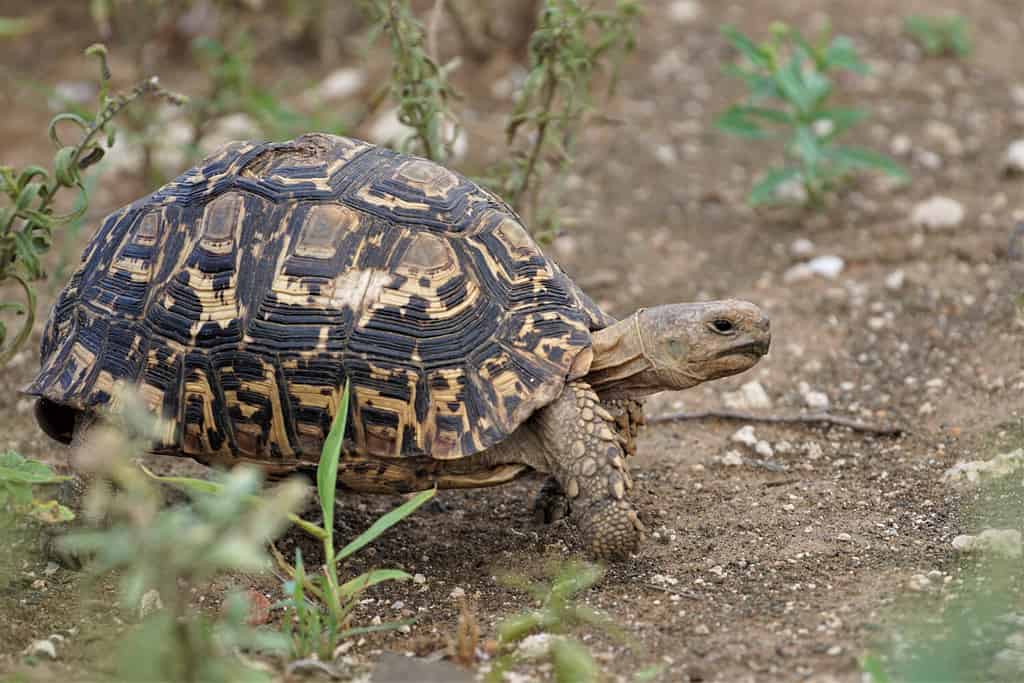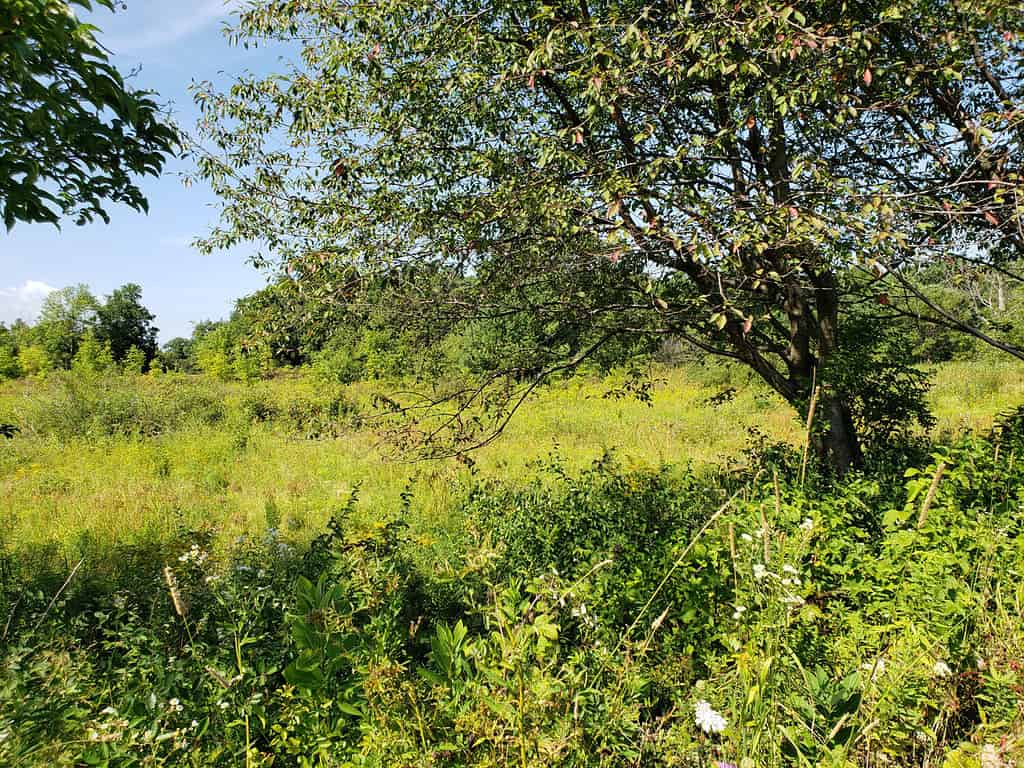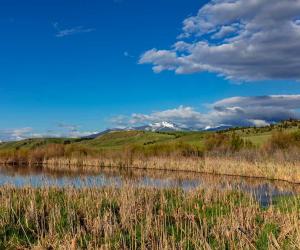Turtle Poop: Everything You've Ever Wanted to Know
The natural world is a treasure trove of wonders, from the majestic migrations of monarch butterflies to the stealthy movements of predators in the African savanna.
Yet, there are some aspects of the natural world that remain largely overlooked but are essential in their own right.
Turtle poop is one such enigmatic subject that merits our attention.
Delve into the fascinating world of turtle poop. Learn about its importance and the vital role it plays in the ecosystems it touches.
The Nature of Turtle Poop

©pniesen/iStock via Getty Images
Turtle poop, like the waste produced by all animals, is the result of their metabolic processes. Turtles, as reptiles, play a unique role in the natural world, and their excrement is equally distinctive.
A typical turtle’s diet includes plants, aquatic vegetation, and, in some cases, small invertebrates. This diverse diet gives their waste a unique composition, which can vary depending on their species, habitat, and diet.
Turtle excrement, like the waste produced by many animals, can provide valuable insights into the biology, diet, and health of the turtle, as well as its role within its ecosystem.
Here are some of the things that turtle poop can tell us about the turtle:
Dietary Habits
The composition of turtle poop can reveal what the turtle has been eating.
Depending on their species and habitat, turtles may have herbivorous, omnivorous, or carnivorous diets.
By analyzing the contents of their feces, researchers can gain a better understanding of the specific foods a turtle consumes.
Health and Well-being
Abnormalities in the appearance or consistency of turtle excrement can indicate potential health issues. For example, changes in the color, texture, or frequency of excrement might signal digestive problems, parasites, or other health concerns.
Monitoring turtle poop can help researchers and conservationists assess the overall health of turtle populations.
Ecological Role
The presence of specific nutrients in turtle excrement can indicate the role they play in nutrient cycling within an ecosystem. For instance, the excrement may contain nitrogen and phosphorus, which are essential nutrients for plant growth.
This can provide insights into how turtles contribute to nutrient cycling in aquatic and terrestrial ecosystems.
Habitat Preferences
Analyzing the location of turtle excrement within a habitat can offer information about the turtle’s preferred areas for feeding, resting, and nesting.
Researchers can use this data to better understand the turtle’s habitat requirements and behaviors.
Conservation Efforts
Collecting and analyzing turtle excrement can aid in monitoring the health and distribution of turtle populations. This information is invaluable for conservation efforts.
By studying their excrement, researchers gain insights into the presence, abundance, and ecological impacts of different turtle species in various environments.
Research on Specific Species
Fecal analysis can be particularly useful for studying specific turtle species or populations. By examining the waste of particular individuals or groups, researchers can learn more about the habits and needs of those populations.
It’s important to note that studying turtle poop often requires specialized techniques and equipment. This equipment includes processes such as genetic analysis or nutrient testing.
This type of research is typically conducted by scientists, ecologists, and conservationists. It is a critical part of their broader efforts to understand and protect turtle species and their ecosystems.
Role in Aquatic Ecosystems

©Dar Zya/Shutterstock.com
Turtle poop is of particular significance in aquatic ecosystems.
Freshwater turtles, in particular, spend a considerable portion of their lives in water and often feed on aquatic plants, invertebrates, and algae. As a result, their excrement contains nutrients like nitrogen and phosphorus. Nitrogen and phosphorus are essential for the growth of aquatic plants and algae.
These nutrients become a vital component of the aquatic food chain, supporting the entire ecosystem.
The process starts with turtles digesting their food. Nutrients from their diet are absorbed into their bloodstream and eventually end up in their excrement.
When turtles defecate in the water, these nutrients are released into the aquatic environment. Algae and plants use these nutrients for photosynthesis, which forms the base of the aquatic food web. Zooplankton feed on the algae and plants. Small fish consume the zooplankton. Larger fish eat the smaller fish, and so on.
This chain continues until it reaches apex predators. Larger fish, birds, and even humans may rely on aquatic resources for sustenance.
Turtle Poop and Terrestrial Ecosystems

©CatZupp/Shutterstock.com
Turtles that primarily dwell on land also play a crucial role in terrestrial ecosystems. Their diet often consists of fruits, vegetables, and insects.
When they defecate on land, their waste acts as a natural fertilizer. The nutrients in their excrement enrich the soil, aiding in the growth of plants and trees.
This, in turn, benefits the myriad of creatures that depend on these plants and the overall health of the ecosystem.
While turtle poop isn’t traditionally used for practical applications, it can have ecological significance. The nutrients in turtle excrement play a crucial role in supporting aquatic and terrestrial ecosystems by enriching the soil and serving as a source of nutrients for various organisms.
Here are some practical implications of turtle poop within natural ecosystems:
Nutrient Cycling
Turtle waste helps recycle essential nutrients like nitrogen and phosphorus in ecosystems. These nutrients are essential for the growth of plants and algae in aquatic environments, which, in turn, support the entire food web.
In terrestrial ecosystems, the waste acts as a natural fertilizer, promoting plant growth.
Fertilization
In some cases, gardeners and conservationists have used animal waste, including turtle poop, as a natural fertilizer for plants.
While it may not be the most commonly used option, it can still contribute to soil enrichment in small-scale gardening or habitat restoration projects.
Ecosystem Health
By maintaining the health of aquatic and terrestrial ecosystems, turtle poop indirectly benefits humans by supporting the natural resources on which we rely for food, clean water, and other ecosystem services.
Research
Scientists and researchers may study the composition and effects of turtle excrement to better understand the nutrient cycling and ecological roles of turtles within specific ecosystems.
It’s important to note that using turtle waste for practical purposes isn’t a widespread or economically significant practice, and it’s typically more of a byproduct of their role in ecosystems.
Conservation and habitat preservation are more common approaches to ensure the continued health of ecosystems and the ecological functions provided by turtles and other species.
Conservation and Preservation

©ValeriiaES/Shutterstock.com
Turtles are facing numerous threats, including habitat loss, pollution, and poaching. The decline of turtle populations has consequences not only for the animals themselves but also for the ecosystems they inhabit.
A decrease in the number of turtles can lead to imbalances in nutrient cycling and a negative impact on aquatic and terrestrial ecosystems.
Understanding the ecological importance of turtle poop can help us recognize the value of these remarkable creatures in maintaining biodiversity.
Efforts to protect and conserve turtles and their habitats are not only essential for these species but also for the overall health of the ecosystems they inhabit.
Turtle poop, an often-overlooked aspect of the natural world, plays a vital role in supporting the intricate balance of ecosystems, both aquatic and terrestrial.
The nutrients released through turtle excrement are essential for the growth of plants, algae, and other organisms, forming the foundation of complex food webs. Recognizing the ecological significance of turtle poop underscores the importance of conserving these remarkable reptiles and the habitats they call home.
In the grand tapestry of nature, every creature, no matter how small or seemingly insignificant, has its place and purpose, and the humble turtle is no exception.









